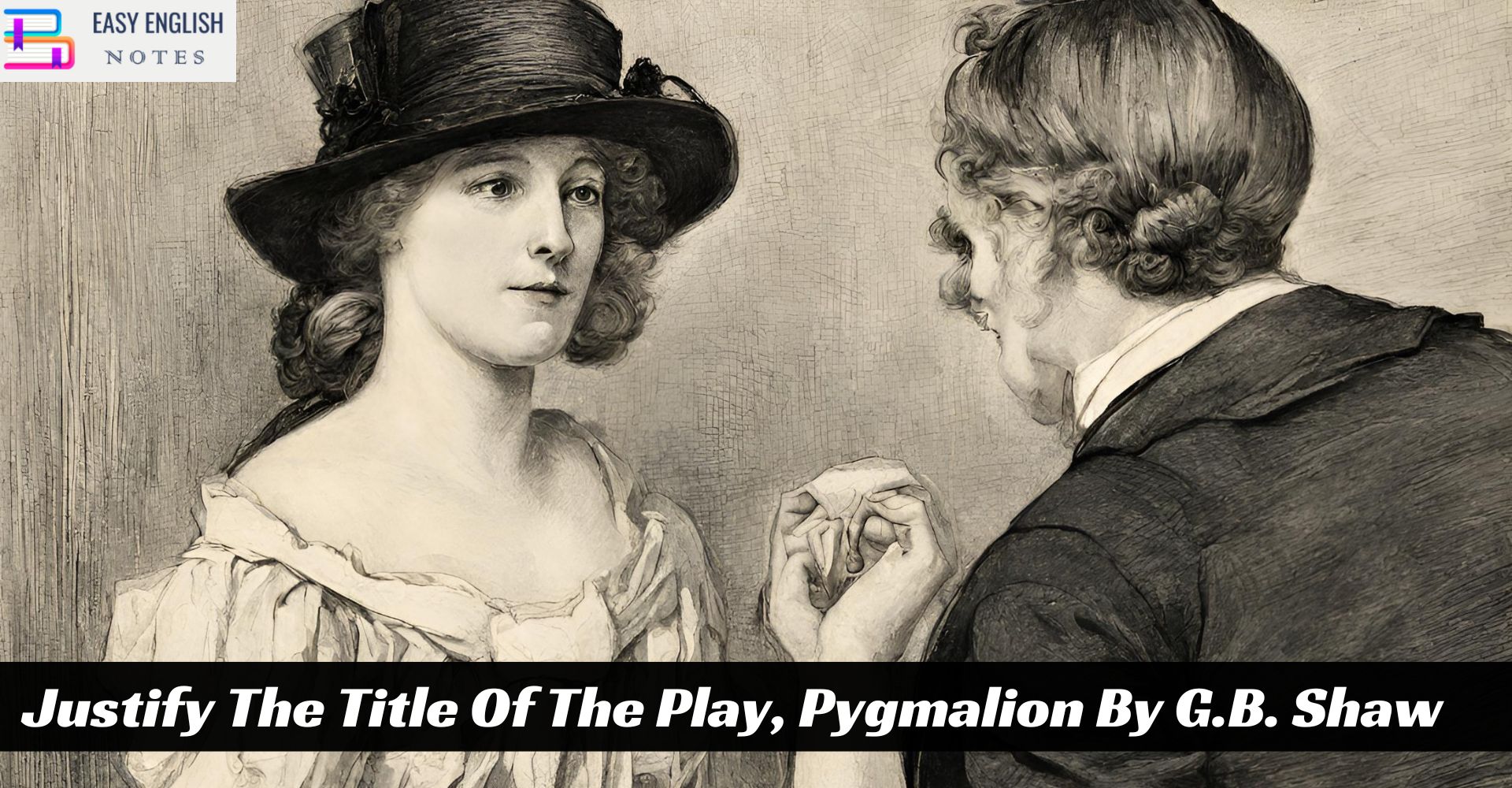The title of George Bernard Shaw’s play, “Pygmalion,” is a profound choice that resonates deeply with its central themes of transformation and the complexities of creator-creation relationships. Drawing from the ancient Greek myth of Pygmalion, the title acts as a metaphor that parallels the play’s narrative and underscores its exploration of social constructs and personal identity.
In Greek mythology, Pygmalion was a sculptor who, disillusioned with women, created a beautiful statue that he fell in love with. His desire and devotion were so intense that Aphrodite, the goddess of love, brought the statue to life. This mythological backdrop provides a rich allegorical context for Shaw’s play.
Professor Henry Higgins, a phonetics expert in “Pygmalion,” plays the role of the modern Pygmalion. He takes Eliza Doolittle, a Cockney flower girl, and transforms her into a refined lady. This transformation is not just about altering her speech but reshaping her entire demeanor and identity. Like the sculptor Pygmalion, Higgins molds Eliza into his ideal vision of a woman, albeit through linguistic and social training rather than through sculpture.
The title encapsulates the play’s exploration of the power of transformation and the consequences of altering someone’s identity. Eliza’s metamorphosis under Higgins’ guidance raises questions about autonomy, self-identity, and the limits of social mobility. The play challenges the notion that external changes, such as speech and manners, can redefine a person’s intrinsic worth or societal position.
Pygmalion is an important play written by G.B. Shaw. The title of this play refers to Pygmalion, the Greek sculptor, who carved a statue and got life into it by Venus, after which he married the animate statue who born him a child. The Shavian Pygmalion is Henry Higgins, a professor of phonetics, who picks up a flower girl named Eliza Doolittle. He teaches her fashionable language and manners and then successfully passes her off as a Duchess. But she is a living and cannot, therefore. be treated as a mere machine. In course of all his experiments and exhibitions, the professor only thinks of his own skill, his own success and failure, but never stops to consider how the girl feels. When the experiment is over. he has a profound sense of relief and joy that he has achieved his triumph and won his bet. Even now the sentiment of the girl is of no account. The girl naturally protests against this dehumanized relationship between her and her teacher. She hurls the Professor’s slippers at him when he wants them and then leaves his place, a free woman. Evidently, she has begun to feel for the professor and wants also to be felt for.
Also Read :
- Compare Hamlet with Macbeth, Othello and other Tragedies
- “The Pardoner’s Tale” is the finest tale of Chaucer
- Prologue to Canterbury Tales – (Short Ques & Ans)
- Confessional Poetry – Definition & meaning
- Line By Line Explanation Of The Poem The Eve of St. Agnes
Now the question is, what is the nature of Eliza’s feeling for the professor with whom she has lived in close association for some time? In the last act of the play, the girl says that she would not marry him, even if he proposed to her. The professor himself is curiously insensitive to sexual emotions. He does not love young women, because he finds in them poor rivals to his own mother. Old Mrs. Higgins who knows much about women, says that it would have been all right, if he had thanked her petted her, and told her how splendid she had been. Every girl has a right to be loved and Eliza loves and is loved by Freddy Hill whom she marries. Professor Higgins remains as ever, an old bachelor. The stormy Protest of Eliza against Higgins indifference and the tempestuous search of the Professor have, according to Shaw, no deep emotional background. They liked each other, they locked after each other. they grew accustomed to each other, they were pleasant to each other. but they did not fall in love. It is because Shaw is very shy of deep emotions that he concludes a real drama with such an anti-climax. There is no doubt that Eliza was deeply moved when she left the Professor’s place and it is equally certain that Higgins was in feverish excitement when he went out in search of her. Shaw here creates a situation charged with deep emotional possibilities. But as he has a distaste for or an impatience of emotions, he stops to remind us that it was only a desire for a little kindness or a little fun that was at the root of the whole affair. The explanation, however, is totally inadequate. Eliza finds that a little kindness is not enough to make life worth living, and she leaves the Professor for the “weak and poor” Freddy Hill.
Moreover, “Pygmalion” as a title also hints at the complex emotional dynamics between Higgins and Eliza. Just as Pygmalion became enamored with his creation, Higgins, though more subtly, develops a complex bond with Eliza. Their relationship blurs the lines between creator and creation, teacher and student, and challenges traditional romantic narratives.
In summary, the title “Pygmalion” justifies itself by effectively encapsulating the essence of Shaw’s play. It symbolizes the transformative journey of Eliza under Higgins’s tutelage and invites deeper contemplation on themes such as the nature of identity, the societal constructs of class and language, and the intricate dynamics of personal relationships.
Thus, the title contains the theme of the play in its embryonic stage. It is a suitable “objective co-relative” for expression of its author. Naturally, it is apt and appropriate.











